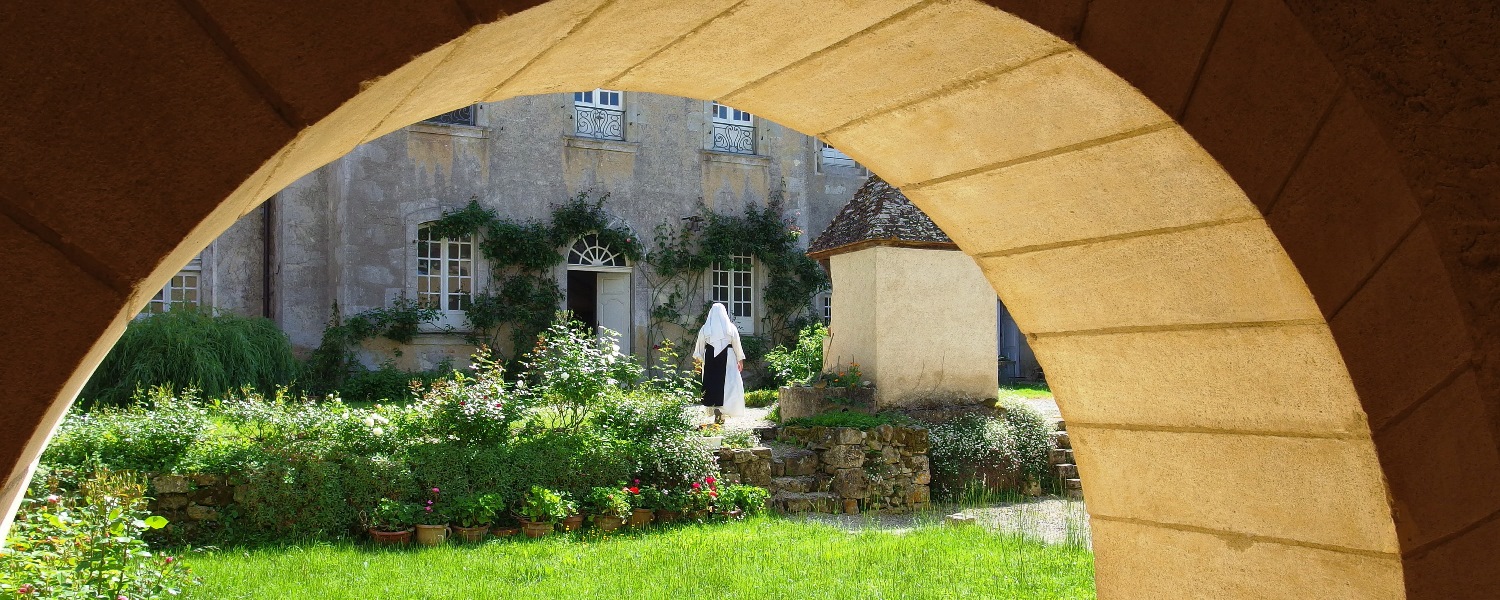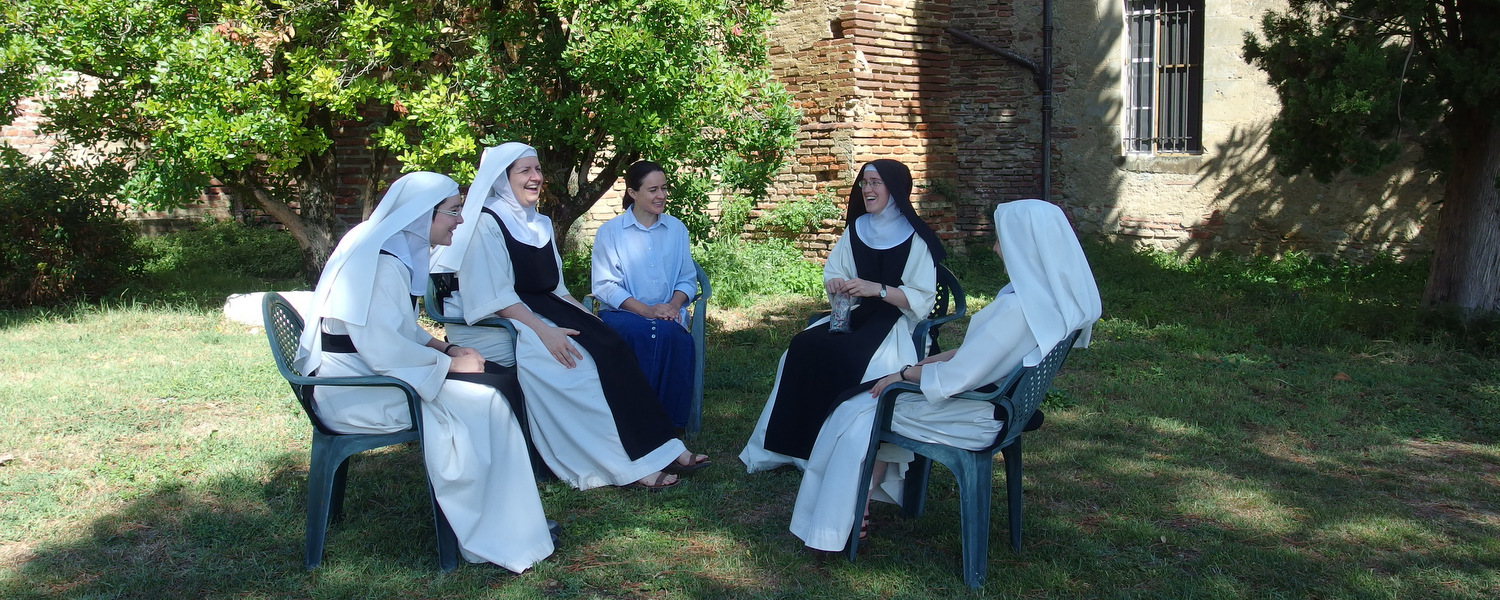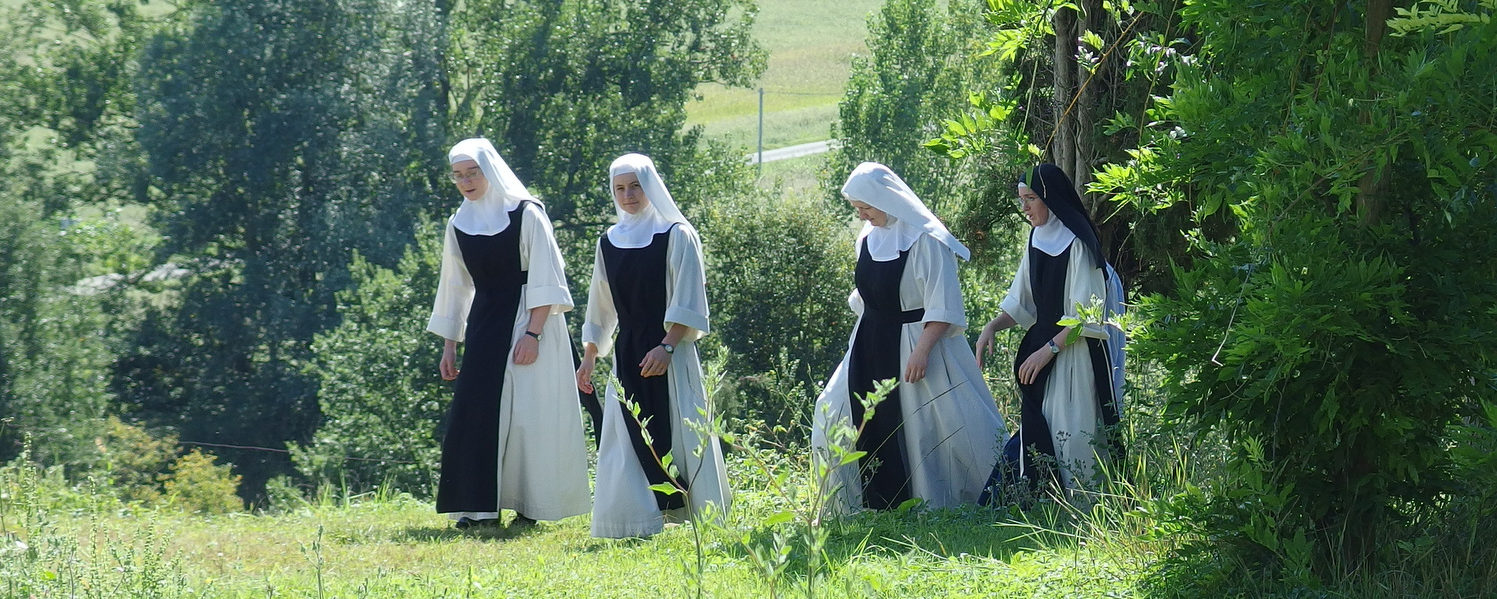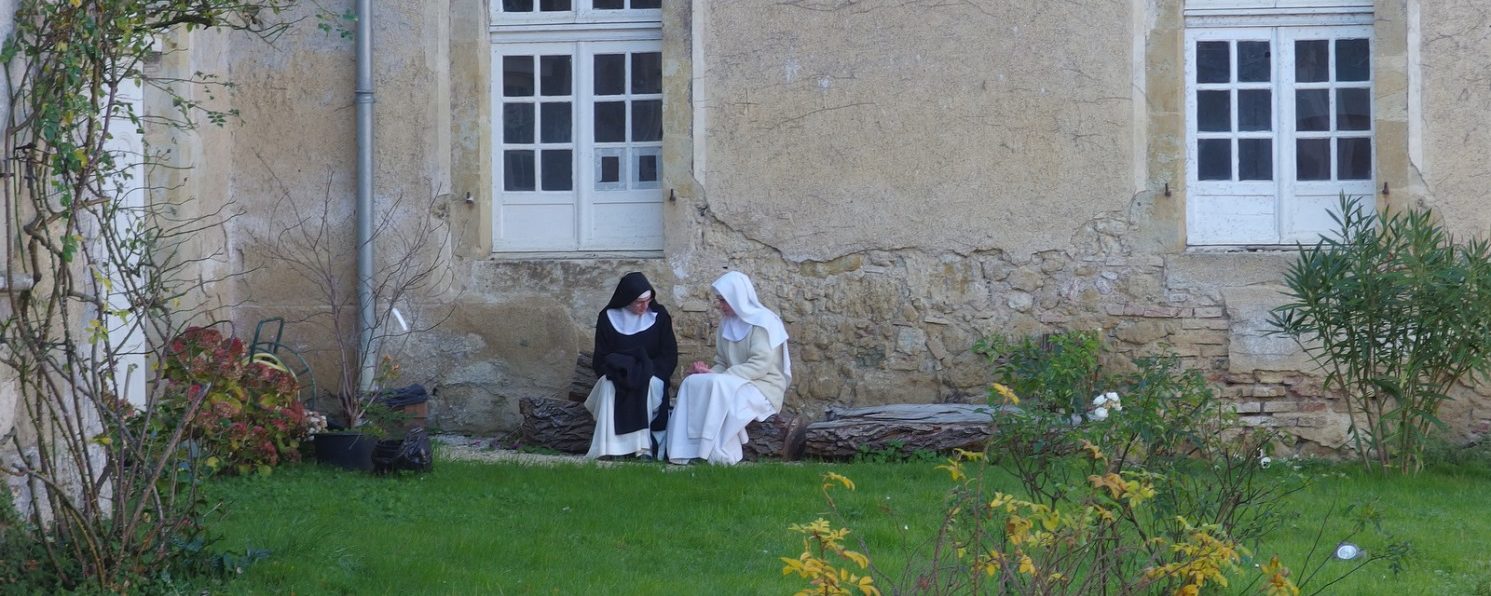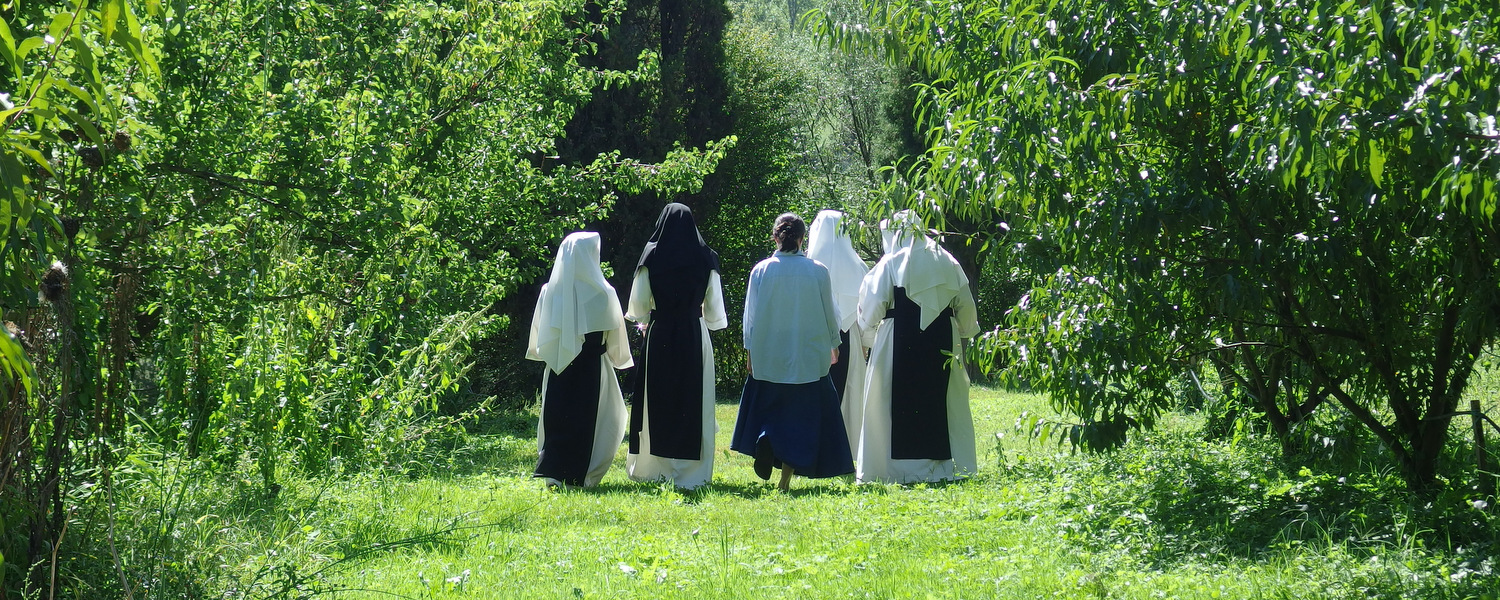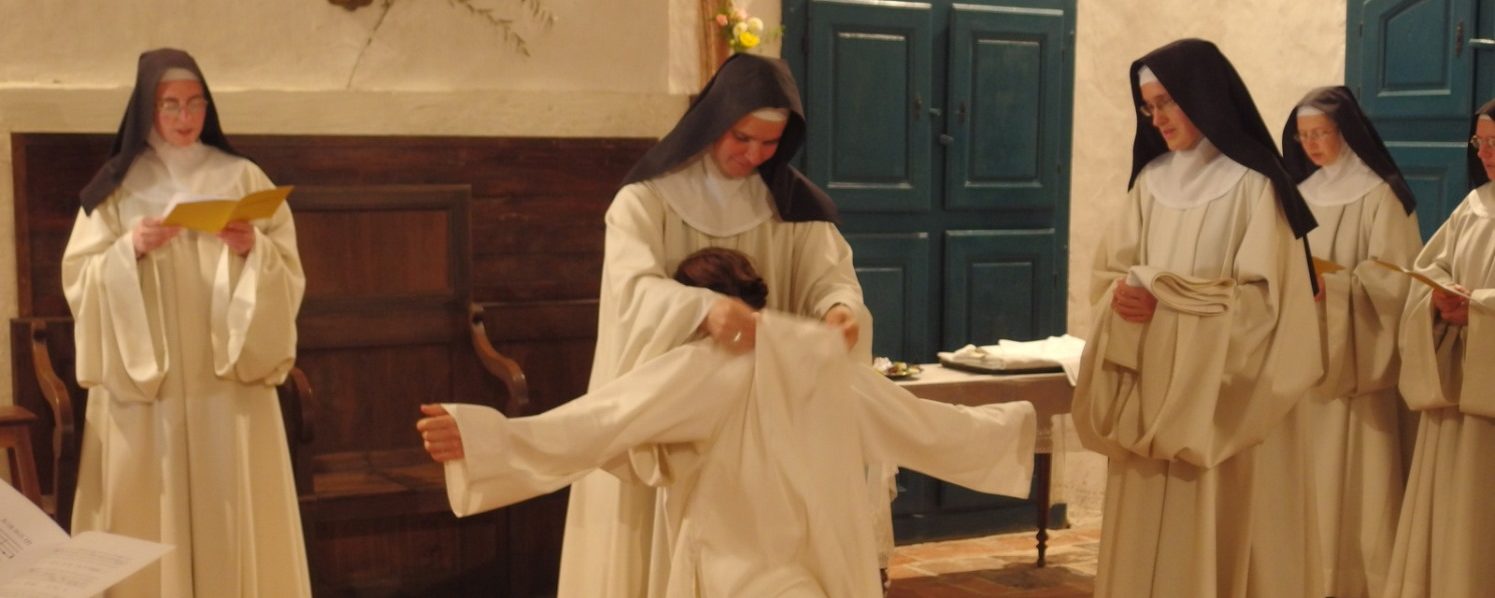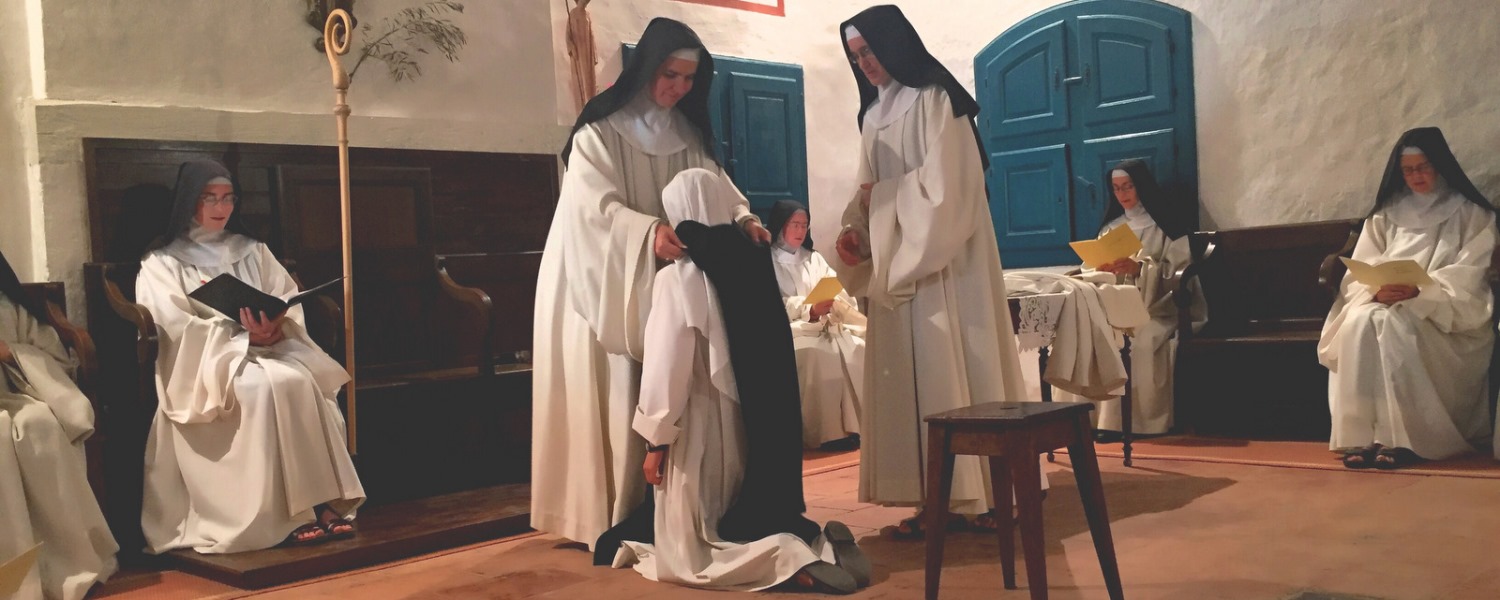Becoming a Nun
We are often asked why we chose to enter the monastery and although it seems easy to answer, it is actually a very difficult question ! .We enter the monastery in response to a call from the Lord, a call that can be discerned through the desires of our heart, the circumstances that brought us here, and above all the peace and joy that make us recognize in this place the good soil where our life will bear fruit.
The choice of monastic life is therefore made step by step, as the light is shed and as the evidence grows that nowhere will be a happier place than here. In order to journey towards the decision to commit ourselves definitively to remain in the community we are accompanied by the Mother Abbess and a sister designated for this mission, called mistress of novices. The other sisters of the community also support this progression through fraternal life, courses given by elders, work in common…
Stages of community involvement
When a young girl wonders about the possibility of joining our life, she begins by meeting us while staying at the abbey’s guesthouse. There, with other guests, she participates in the services, mingles with the sisters during times of service or meetings, this way we can get to know each other. During this period, she exchanges with the novice mistress in order to perceive if the desire for this life which is gradually being born in her heart fits with the Lord’s plan for her. If the exchanges go in this direction, she can ask to make a retreat in the cloister to discover our life from within.
Once she has decided to go this way, the girl can enter the monastery and begin a time of postulancy. She is then in civilian clothes in the middle of the community but shares our daily life to consolidate her decision and so that we can get to know her better.
After about a year, the postulant receives the monastic habit (a tunic, a scapular and a veil, which are all white) in a ceremony in the Chapter Hall, with the community only. Then begins her novitiate time. This lasts about two years and aims at allowing the novice to acquire the bases of her monastic formation, notably through courses (Holy Scripture, spirituality, history of the Cistercian Order, Latin, etc.). During this period, spiritual accompaniment is of fundamental importance so that the young nun can commit herself freely and give herself entirely to God in the community.
At the end of the novitiate, the novice who wishes to do so and who is also judged by the community in her place makes temporary profession among the sisters and receives a black scapular. By these vows, she commits herself for three years (which she will then renew for a minimum of one or two years) to live the monastic life in obedience and stability in the community.
Finally, solemn profession marks the definitive commitment within the monastery. On that day, in the presence of her family and friends, the young aspirant publicly commits herself in the abbey church to persevere until death in the life she has chosen. She signs on the altar the written text of her promise to the Lord and Mass is celebrated on this charter of profession. Thus, the whole life of the nun is offered to the Father in union with Christ in the joy of the Holy Spirit. From then on, the nun wears a black veil and when she sings in the choir she wears the “coule”, a large monastic robe with long sleeves.
Officially, the novitiate ends with solemn profession, but St Benedict explains in his Rule that the whole monastic life is a school where one learns to serve the Lord. After Profession, the adventure continues, until eternal life!
“At the origin of every vocation for the consecrated life there is always a strong experience of God, an experience that cannot be forgotten, one remembers it all one’s life… And this we cannot calculate or program. God always surprises us! It is God who calls…”
Pope Francis, to the youth in Assisi (October 4, 2013)
“Our vocation is … above all, not to deviate from this excellent path which is the path of love, to advance day by day in these things and to persevere in them until the last day. »
St Bernard, letter to the monks of St John in the Alps

